This course introduces students to the basic concepts underlying the production, perception, and physics of speech. It is subdivided into three parts:
- A general survey of articulatory phonetics
- A short introduction to auditory phonetics
- A discussion of the most important physical aspects of speech and the most widely used experimental techniques.
Since many universities confine their curriculum to articulatory phonetics, this part is given maximum attention in the course.
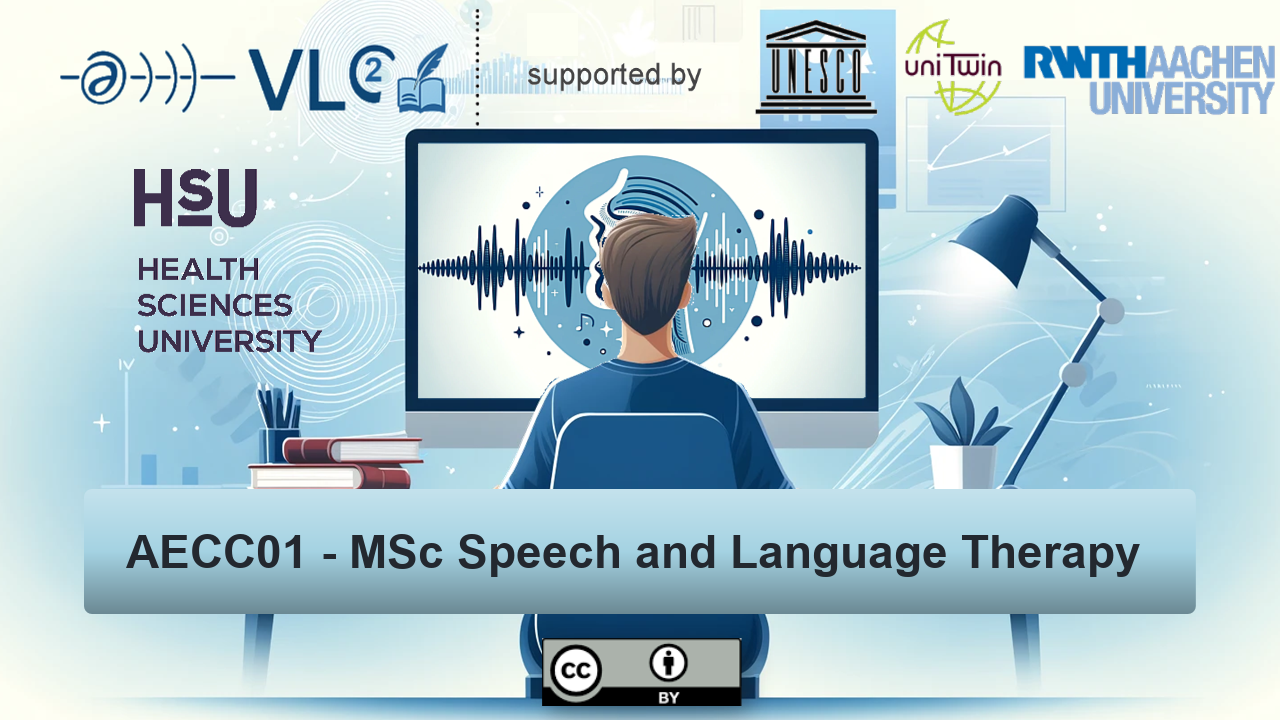
- Teacher: Lucie Rochfort
The collection of these linguistic OER modules, where each module approximates the content of 90 minutes of class teaching was combined to the "Introduction to Linguistics" course EL100 for the University of Rizal System-Angono in the Philippines.
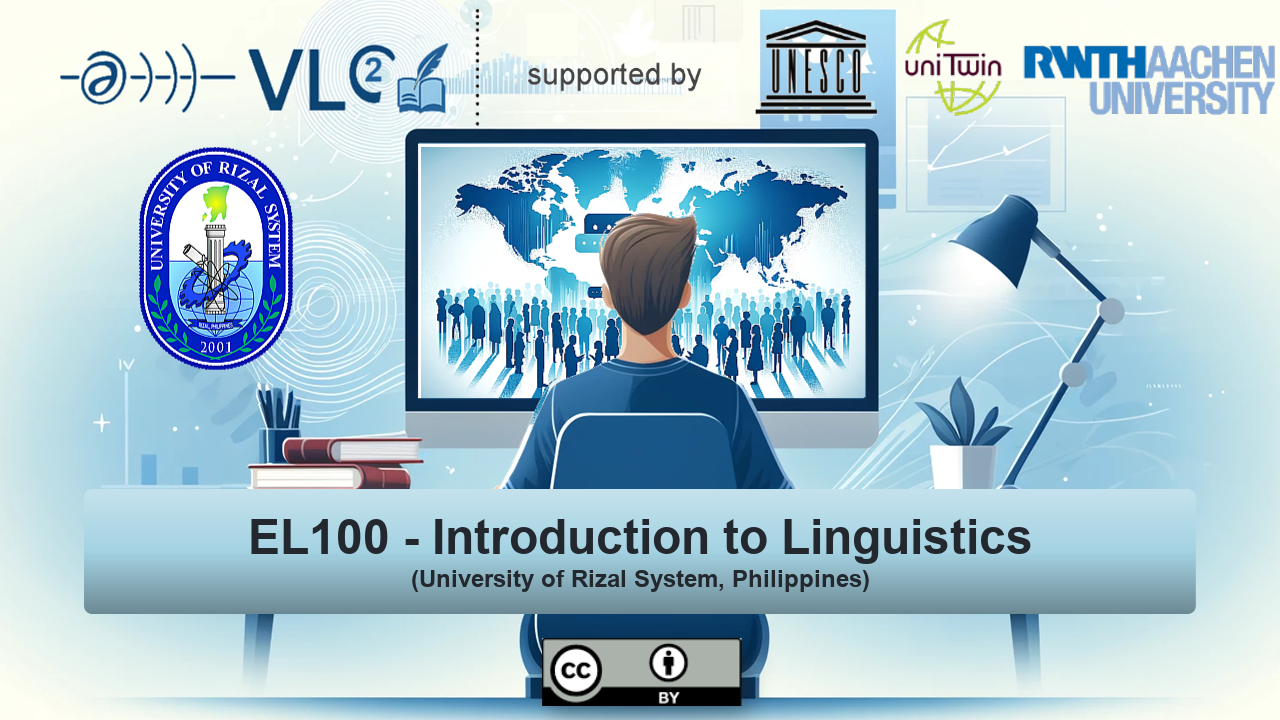
- Coach: Marie Tiburcio
This repository/course is intended to familiarize the participants with the main structural properties of PDE (Present-Day English) grammar. It starts with a review of linguistic approaches to grammar and then discusses the central grammatical aspects of PDE sentence structure: syntactic categories and syntactic functions. A unit on PDE orthography concludes the course. Thus, it is the class for everyone who is involved in teaching or studying English in one way or another.
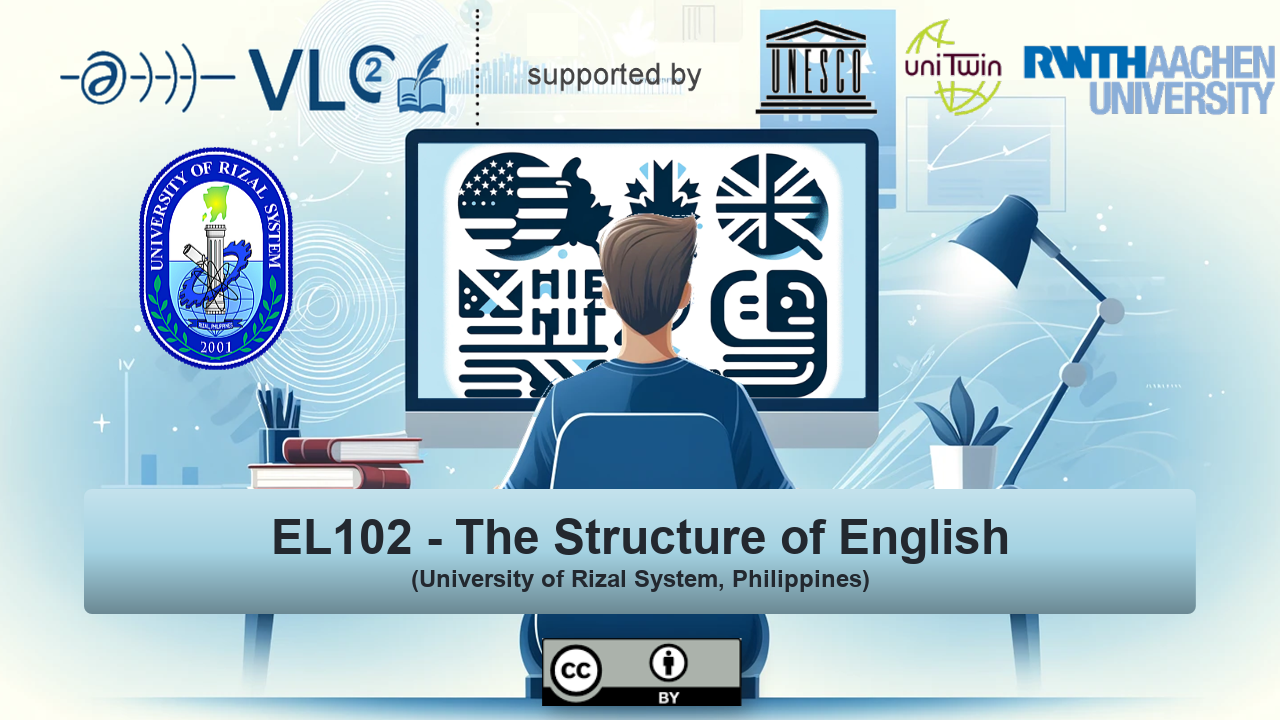
- Teacher: Marie Tiburcio
This course/repository discusses the most important theoretical foundations of phonology using as many languages (from the VLC language index) as possible. In particular the following topics will be covered:
- Phonetics (Introduction)
- Phonology (Introduction)
- Cardinal Vowels
- PDE Vowels
The initial units additionally provide an overview of the underlying concepts of phonetics.
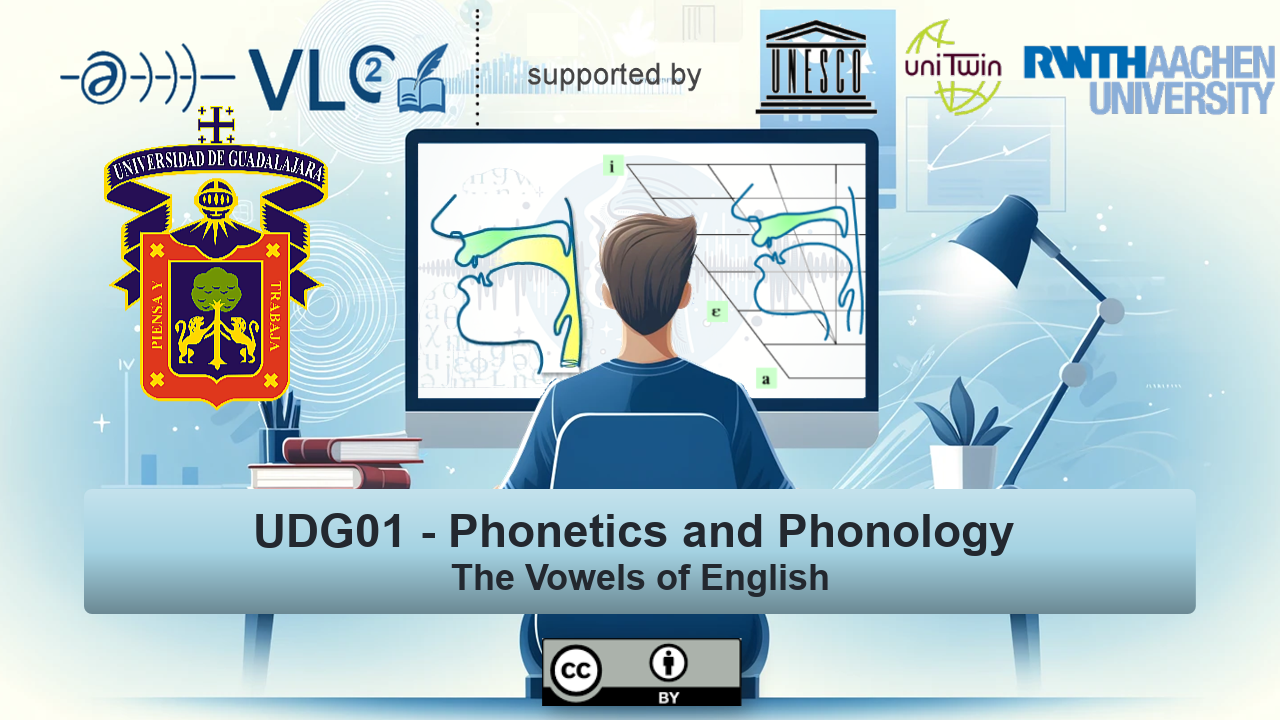
- Teacher: Adriana Rosalina Galván Torres
This course/repository discusses the most important aspects necessary to understand the articulation and acoustics of consonants. In particular the following topics will be covered:
- Phonetics (Introduction)
- The Production of Consonants
- The Physics of Consonants
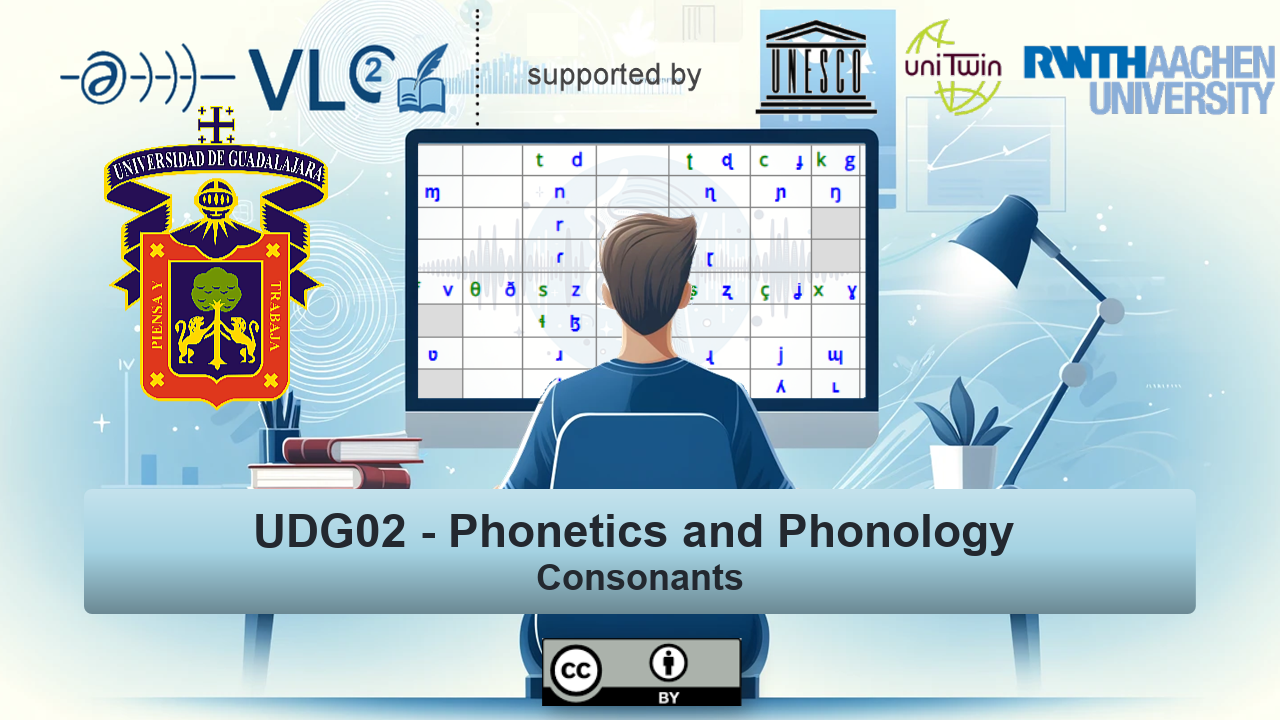
- Teacher: Adriana Rosalina Galván Torres
